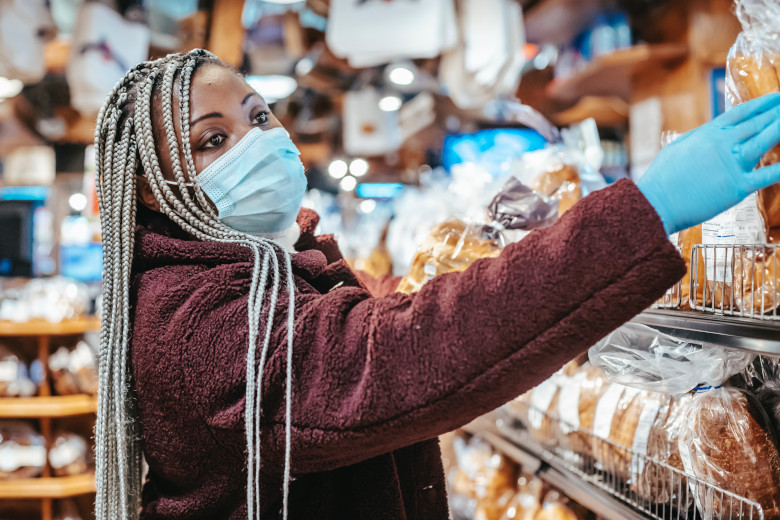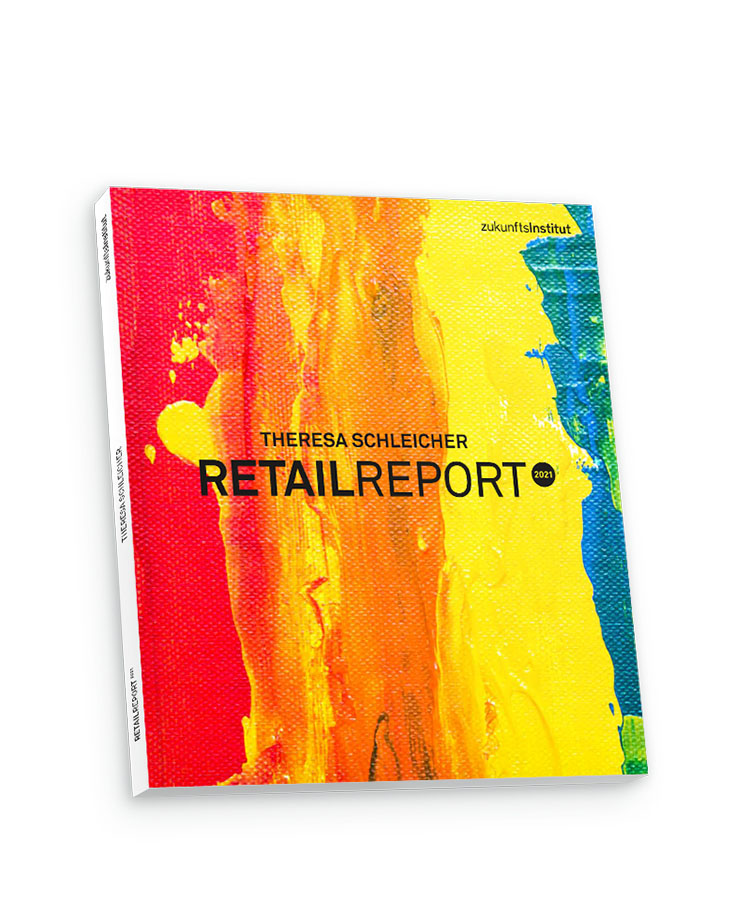
No matter how long and intense the corona crisis is: Business with consumers will never be quite the same again
Theresa Schleicher is a renowned connoisseur of the retail trade. In the current issue of her annual Retail Report, Schleicher has focused on the corona-induced acceleration of changes in the consumer goods market for the Zukunftsinstitut. However, not everything that is currently changing can be attributed to the pandemic – for example, the trend towards cashless payments or the willingness to give up unprofitable locations. The crisis is merely a trend accelerator. Other things are being brought into focus, such as the value of personal contact and the willingness to strive for the wellbeing and sense of security of customers. Whereas in the past a long queue of customers in front of the shop was regarded as a sign of quality and demand; today it is more a sign of ignorance and the inability to reorganize shopping in the shop.

Theresa Schleicher
In her report, Schleicher deals with the retail trade in its entirety and dedicates chapters to the clothing sector, furniture and consumer electronics. Nevertheless, it is well worth reading for food suppliers, especially the parts that deal with the sensitivities of consumers.
According to Schleicher, there will be no return to ‘business as usual’. The crisis has shown many consumers that they can do without some expenditure and that there are more important things than shopping. Alternatively, they are looking more closely at quality, where it comes from, service, as well as at how the product reaches them and what reputation the manufacturer has as an employer. The question of whether a supplier is integrated into regional networks is also becoming a purchasing argument.
According to Schleicher, a serious argument for consumers in the future will be the question of safety. How does the supplier ensure that the consumer feels safe and secure in his or her shop, and which supply channels does he or she take beyond the shop, for example, through online offers and/or delivery transactions? According to Schleicher, the feeling of security is a highly emotional issue. This can be seen, amongst other things, in the willingness across all age groups to switch to cashless payments, which grew rapidly during the crisis. In the medium term, however, the introduction of unattended shops in which customers do everything themselves is more of a pious hope for Schleicher. Exceptions could be shops such as the Austrian “Landspeis”, a pioneering concept that positions containers with organic food in rural areas and relies on trust within the village communities.
At the same time, suppliers in the consumer goods market have to deal with the fact that consumers’ living and working environments have changed during the crisis, for example by reorganizing work in the direction of the home office, and that this has also led to the loss of some of the walk-in customers at transport hubs. The dance around the golden calf ‘globalization’ ended abruptly and consumers and retailers alike are now asking themselves how things can and should continue. It is also interesting to note Schleicher’s thesis that adapting to change and dealing with the challenges is not a question of age. The crisis has also caused young consumers to panic, whereas many older people find it easier to adapt to the situation because they have already experienced more than one crisis and are often better off financially than the young, regardless of their respective level.
The crisis has brought a boom to delivery services. In the future, Schleicher says, consumers will also pay attention to how sustainable this part of logistics will be. Not only e-vehicles but also local cooperations are ways to score points. Online farm shops that deliver their goods together are currently in vogue, as they offer locality, freshness, plastic-free packaging, sustainability and networking. ‘Support your locals’ has turned into reality.
According to Schleicher, the pandemic has or will change the range of consumer goods and their forms. There will be losers who leave the market, but there will also be winners. These will include those who also use the crisis as an opportunity for change, activate imagination and alternative thinking and actions, and use local networks. Due to the digitalization of presentation, the growing importance of service and online service will not disappear again. This is a complex conundrum that can hope for political support, because the dreams of globalization have been shattered to some extent.

The Retail Report 2021 in German is available for 150 EUR (incl. VAT) in the online shop of the Zukunftsinstitut. It comprises 128 pages and was published in August 2020 with the ISBN: 978-3-945647-73-8.


